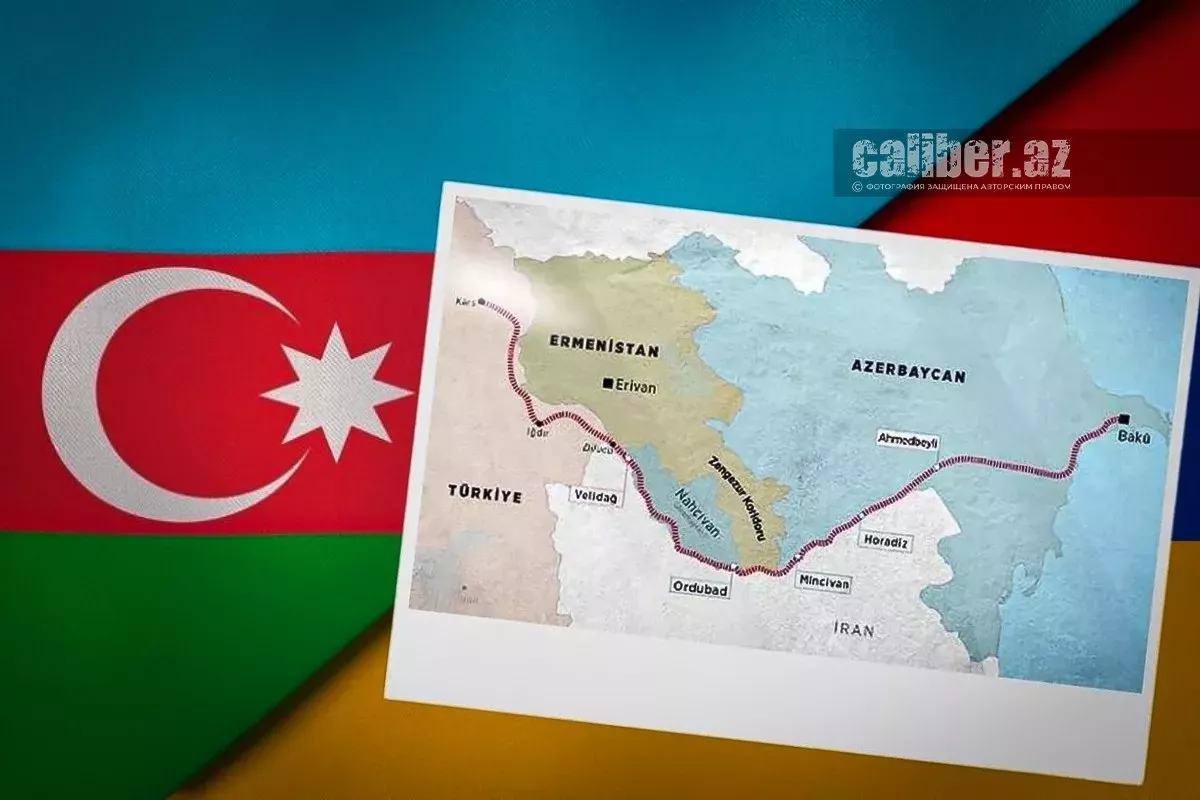Peace in crosshairs: Who fears stability in South Caucasus? Echoes of Washington
The Washington meeting of the leaders of Azerbaijan, Armenia, and the United States, which became a harbinger of peace in the South Caucasus, not only shocked Russia but also unsettled staunch opponents of the current government’s policy in Armenia. Among them, Levon Zourabian, deputy chairman of the Armenian National Congress party, stood out in particular. He launched a harsh critique against the Armenian leadership, posting a long and caustic message on his Facebook page, thereby drawing the attention of the republic to himself.
In short, Zourabian once again trotted out the same old line, accusing the current Armenian leadership of being to blame for “Azerbaijan’s refusal to sign a peace deal, its continued detention of Armenian prisoners, the destruction of Artsakh’s cultural heritage, and the blocking of any chance for Artsakh Armenians to return.”
Given Zourabian’s opposition views, it is not hard to guess that his latest provocative statements are aimed at undermining the current government’s approval rating at home. He has long argued—often with considerable fervor—that “if Azerbaijan attacks, only Russia, not the West, will defend Armenia.” In light of the recent Washington meeting, his renewed activism looks very much like yet another Moscow-driven political move.

This version is quite plausible, as Russian politicians and diplomats have been making almost identical statements. This narrative fits neatly with the rhetoric coming out of Moscow, where politicians and diplomats have been making almost identical claims. In particular, members of the Russian State Duma are now openly accusing Nikol Pashinyan of “giving away everything generations of Armenians fought for” at the West’s behest and “selling off Armenia wholesale and retail.”
The statement was also tied to the fact that Washington had reached an agreement to create the Zangezur Corridor, which would connect Azerbaijan’s western regions with Nakhchivan through Armenia, and to grant the United States control over this transport route under a 99-year lease. According to the Duma, Yerevan got nothing in return from either Baku or Washington, while Moscow “spent years working for a fair peace between Baku and Yerevan, only for Azerbaijan and Türkiye to choose war and Pashinyan’s government to betray its own people in Karabakh.”
The provocative statements from the State Duma are echoed by the Russian Foreign Ministry, which also hides behind grandiose claims of “Moscow’s commitment to peace in the South Caucasus.” All of these statements confirm that the double standards, which the West is often guilty of, are in fact a part of Russian policy in the South Caucasus — a reality highlighted by the historic meeting in Washington.
In other words, a full-blown hysteria and propaganda campaign against Azerbaijan and Armenia has erupted within the Russian establishment, due to the fact that, for the first time in the history of Russian-Armenian relations, Armenia dared to defy Moscow by choosing the path of peace in the region.
Turning back to the situation within Armenia itself, it appears that the prime minister and his team are currently focused on achieving peace with Baku. At a recent press conference, Nikol Pashinyan stated that Armenia and Azerbaijan have already established peace by signing documents in the United States, describing the event as historic.
“I have been saying for several months that there will be no war between Armenia and Azerbaijan, there will be peace,” he said, emphasising that the peace was achieved within the framework of the sovereignty and territorial integrity of both countries.

In addition, in an interview with Fox News, Nikol Pashinyan stated that the implementation of the documents signed in Washington would bring significant benefits to both Iran and Russia.
"Iran would have access through railway from the Persian Gulf to the Black Sea and Russia and Iran will have opportunity to have a railway connection between the two countries,” he said.
Thus, the Armenian prime minister sent a message to the international community, as well as to all the “nitpickers” spewing venom over the Washington summit, that the Zangezur Corridor takes into account the interests not only of Azerbaijan and Armenia but also of other regional players, namely Iran and Russia, and is intended not against anyone, but for the benefit of all.
Meanwhile, Armenia’s Minister of Territorial Administration and Infrastructure, David Khudatyan, stated that, as a result of the documents signed in the US, the country now has the prospect of opening roads passing through Azerbaijan.
“At the moment, these roads are not yet open, so travel along them is not available to Armenian citizens. However, we are moving at an accelerated pace toward making them accessible to all citizens of Armenia,” he said, adding that the documents signed in Washington serve as a guarantee for upholding the principles of territorial integrity, sovereignty, jurisdiction, and equality of the parties.
Thus, judging by the statements of the Armenian leadership, it can be said that despite the obstacles, Yerevan is genuinely intent on moving in a peaceful direction. However, on this path, both Pashinyan and his team will need to demonstrate strong political will to bring the process to the final signing of a peace agreement.
At the same time, the outcome of the Washington meeting made it clear that, unlike Kremlin-backed figures in Armenia who are desperately chasing power and seeking to destabilise the region, Nikol Pashinyan is committed to continuing dialogue with Azerbaijan—a path that could finally bring long-awaited peace to the region.








